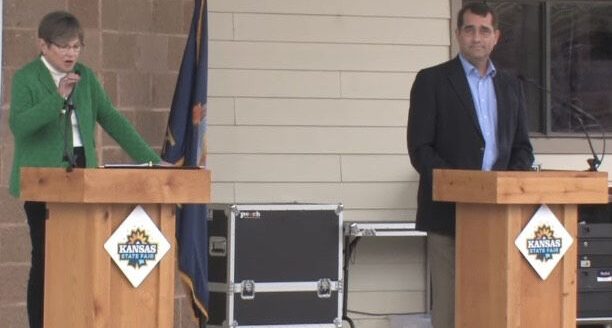Representatives lead bill to reduce waste regulations
Legislation aiming to rectify a shortcoming with the Comprehensive Environmental Response, Compensation and Liability Act that has provided for the clean up of severe industrial chemical toxic waste for over 30 years was introduced in the House March 14, according to a release by its primary sponsors, Reps. Billy Long, R-MO, and Jim Costa, D-CA. The bill, which has over 80 co-sponsors, is titled the Agricultural Certainty for Reporting Emissions Act, or ACRE Act.
CERCLA, more commonly known as the “Superfund Law,” is used primarily to clean hazardous waste sites but also includes a mandatory federal reporting component.
According to the release, if CERCLA were to be applied to agriculture operations, 200,000 ranchers, livestock farmers and dairy producers in the United States would be subject to regulation created to address toxic waste dumps and spills, such as chemical tank explosions.
Yet, a recent court decision threatens to make this regulation a daily reality for agriculture producers as soon as this May. The ACRE Act will prevent CERCLA from applying to farms, thus freeing farmers, ranchers and dairy producers from the unintended application of CERCLA and providing them the certainty they need to run their operations.
“Unfortunately, common sense is not common in Washington, D.C.,” Long said. “The bipartisan ACRE Act distinguishes between farms and hazardous waste sites to relieve farmers and ranchers of burdensome paperwork and allows them to do their jobs free from unnecessary government regulation. With southwest Missouri being home to hundreds of farmers and ranchers, this practical legislation would allow these men and women to focus on their farms rather than on filling out government forms.”
Costa, a third-generation farmer in California’s San Joaquin Valley who serves on the House Agriculture Committee said, “The ACRE Act is good for our farmers and our food system, both in the San Joaquin Valley and across the United States. It is bipartisan, common sense legislation that respects the need for certain types of regulation while refusing to allow blind regulation from harming our agriculture system, our businesses and our communities.”
Because Congress did not expressly state that CERCLA does not apply to farms, the law designed to address toxic waste and superfund sites can be used to regulate the naturally-occurring farm emissions that result from the daily ins-and-outs of raising livestock. Yet, most agree that Congress never intended a law designed to address industrial chemical toxic waste to be applied to farms.
Along these lines, the Environmental Protection Agency issued a rule under the Bush administration exempting farms from CERCLA’s emissions reporting requirements in 2008, and the Obama administration successfully defended the farm exemption in federal court for eight years.
However, a recent court decision revoked the exemption, with the court ruling that the EPA did not have the legal authority to issue the rule. By explicitly stating the farm exemption, the ACRE Act seeks to make the exemption permanent, restoring Congress’s intent to the original law and protecting agriculture operations from regulatory overreach.
Sens. Deb Fischer, R-NE, Joe Donnelly, D-IN, introduced similar bipartisan legislation—the Fair Agricultural Reporting Method Act—in the U.S. Senate, on Feb. 13. That bill currently has 37 co-sponsors and could be marked up by the Senate’s Environment and Public Works Committee soon.
Upon being sued in 2009 by environmental advocacy groups, the Obama administration’s EPA defended the exemption in court on the grounds that CERCLA and EPCRA do not explicitly exempt farms because Congress never believed that agriculture would be covered under these statutes, so a specific statutory exemption was not viewed to be necessary.
In April 2017, the D.C. Circuit Court vacated the EPA’s 2008 exemption, putting nearly 200,000 farms and ranches under the regulatory reporting authorities enshrined in CERCLA and EPCRA.
The appeals court ruling could force producers to “guesstimate” and report the emissions from manure on their farms to the Coast Guard’s National Response Center and subject them to citizen lawsuits from activist groups such as the Humane Society of the United States.
The appeals court’s April decision originally set a Nov. 15, 2017, deadline for as many as 200,000 farms to report emissions. Some farmers tried filing reports Nov. 15, but the Coast Guard’s NRC system was overwhelmed.
In some instances, NRC operators refused to accept reports for more than a single farm per call because they didn’t want phone lines tied up, and in one case, an operator sent notices to more than 20 state and federal response authorities, including the Department of Homeland Security, the Centers for Disease Control and Prevention and a state police agency, after receiving a report.
The new reporting requirements could have gone into effect on Jan. 22, but the court delayed implementation of the requirements until May 1, which gives Congress time to act.
National Pork Producers Council President Jim Heimerl, a pork producer from Johnstown, Ohio, said in a release, “America’s pork producers are grateful to Congressmen Long, Costa and their 80 colleagues for introducing legislation to fix this problem. Routine emissions from hog manure do not constitute a ‘hazardous’ emergency that requires the Coast Guard to activate a national cleanup response.
“EPA exempted farms from CERCLA reporting because it knew responses would be unnecessary and impractical. We need to have that exemption reinstated, and NPPC calls on the House and Senate to pass their respective commonsense, bipartisan bills as soon as possible.”
“The pork industry was prepared to comply with the reporting mandate,” Heimerl said, “but EPA, the Coast Guard and state and local emergency response authorities said they didn’t want or need the information, which could have interfered with their legitimate emergency functions.”
Larry Dreiling can be reached at 785-628-1117 or [email protected].


